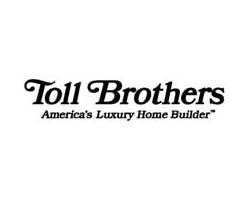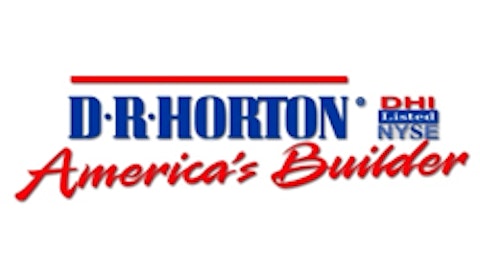Home-builder stocks soared in 2012 and early this year but have since leveled off their earlier peak. The housing market is sure going to meet a bumpy road before full recovery is achieved; therefore, I believe there is money to be made. But finding good housing stocks is like finding a needle in a haystack.
A bumpy road to recovery
In April, sales of new single-family houses hit a seasonally adjusted annual rate of 454,000, the second-highest level since 2008, and way above last year’s estimate of 352,000. Moreover, the National Association of Home Builders issued an upbeat news release on housing starts, which rose 6.8% in May, mainly because of increased construction of multifamily homes.
Thanks to institutional investors, the U.S. housing market has been driven upward. According to Forbes, The Blackstone Group L.P. (NYSE:BX) is now the largest owner of individual houses in the United States, with about $3 billion invested in foreclosed houses. Furthermore, Warren Buffett’s Berkshire Hathaway Inc. (NYSE:BRK.A) has been building out a residential real estate brand called Berkshire Hathaway Home Services that it plans to franchise with joint-venture partner Brookfield Asset Management.
As a result, the prices of real estate assets went up in more than 30 major cities around the country. Critics of the housing market recovery claim that Wall Street created the bubble, Wall Street burst the bubble in 2008, and now Wall Street is the one inflating a new bubble.
The impact of rising interest rates
Similarly to bonds, housing prices are inversely proportional to interest rates. As rates rise, fewer people qualify for loans and prices normally drop to make the housing market more competitive. This will have a negative impact on both re-sellers and home builders.
One should note that home-builder stocks are particularly sensitive to rising interest rates. Assuming rates will continue to rise, home builders are going to face a dilemma; on one hand, home builders are going to slow building due to diminishing demand, and on the other hand, home builders are going to lower prices, which is going to hurt profit margins.
During the last housing boom, interest rates were markedly higher than today’s environment; the 30-year mortgage rates were between 5% and 7%. Therefore, there is no doubt about the negative impact rising rates have on the housing market. But that impact is somewhat limited and other factors, such as the state of the economy, job market, housing starts etc., may drive the housing market.
A needle in a haystack
A large number of companies rode the recent housing recovery wave; to name a few: Pulte Group, D.R. Horton, Standard Pacific, Toll Brothers Inc (NYSE:TOL), Lennar Corporation (NYSE:LEN), KB Home (NYSE:KBH), and as well as SPDR Home Builder, the exchange-traded fund for the home-building industry. The mentioned companies demonstrated remarkable gains last year, however, those gains have recently started to slow down. Despite the recent hype over housing stocks, few companies still have upside potential except for KB Home, Toll Brothers Inc (NYSE:TOL) and Lennar, which I assume will outperform other home-builder stocks.
The winning trio
Lennar Corporation (NYSE:LEN), one of the nation’s leading builders, had big gains in most of its regions and segments. Lennar posted second-quarter earnings of $135 million on a 60% jump in revenue; moreover, Lennar Corporation (NYSE:LEN)’s earnings per share more-than-doubled. Lennar has consistently reported double-digit revenue growth over the past several quarters.
The Fortune 500 company is a veteran in its field. Lennar’s return on equity (ROE) is better than most of its competitors but the company does have higher debt. The company has a debt-to-equity ratio of 1.5, meaning it is highly leveraged and for every $1 in asset value it borrows $1.50. Lennar Corporation (NYSE:LEN)’s P/E ratio is 66, while the average P/E ratio for a stock on the Standard & Poor’s 500 index is around 14.





